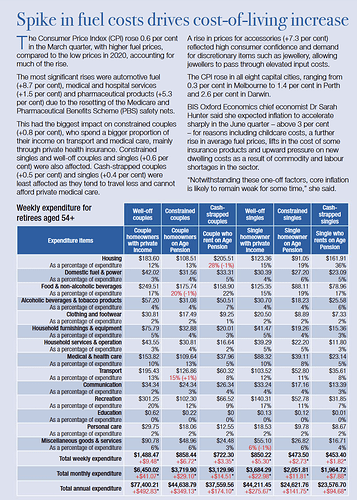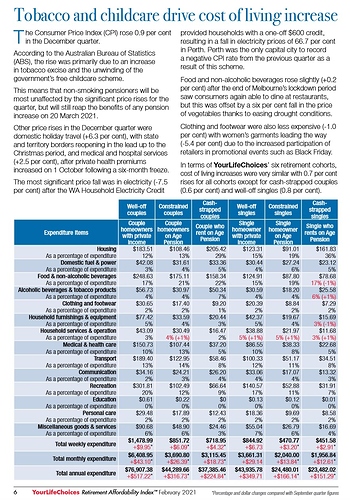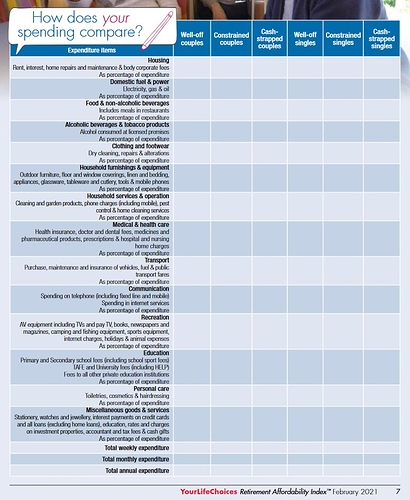I am a retired CPA and get asked about financially surviving retirement. I always reply, “see a financial planner”, and then proceed to outline how to source such a person. The reality is reflected in BrandanMays’ expression, “There’s no ‘on-size-fits-all’.”
My health forced me into early retirement 20 years ago. My retirement income not only fell significantly short of my salary at retirement, but it also fell short of what I had been aiming at for retirement. But as the months rolled by, I saw an up-side to my new income position. Professional fees dropped 90%, payments for superannuation stopped (very significant), I no longer needed the house size I had and found that relocating to an area more supportive in facilities for retirement life—shopping, medical, gym, coffee shops, swimming, etc. Such a move can produce considerable savings and free up capital to invest. Finally, there were sizable savings in clothing (I wore suits), transport costs (petrol, servicing, tyres, cars lasted longer), professional development costs (substantial), various association fees, lunch costs, etc.). Importantly, there were tax advantages attached to a retirement income.
A critical facet to retirement is what you intend to do with your time. This was an area I had planned well, and it had little to do with my profession. However, it is often a governing factor to financial survival. Many professional people seem to experience difficulty in this area. Their lives have been so engrossed in their work that not only was there no time for extra curricula activities, but they also had nothing planned for retirement.
Lifestyle is paramount. People who expect to carry on in retirement in the same manner when at the peak of their careers will probably be financially challenged. BrendanMays’ comment in reference to the 70% benchmark, “for high income earners, the percentage could be lower” can only be true if the expectation of such people includes a serious look at their proposed retirement lifestyle. Such people can often be heard up into their mid-70s saying, “Oh, I still do a spot of consulting”. This can be a great revealer—they’ve not invested in enough super or they are continuing their vocational lifestyle.
Whatever the expectations from retirement, the key is planning; ensuring enough time to plan adequately; to find the right help; to find out what your contemporaries (and others) are doing, with whom and why. Maintaining the status quo is seldom the answer, but it can be. Seriously challenge every aspect of your lifestyle—if you can’t provide an answer for what you’re doing and why, then it’s likely you need help. Remember, retirement is not a dress rehearsal.


